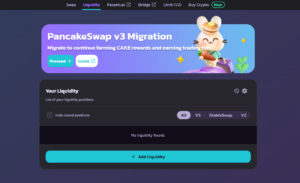Introduction
The cryptocurrency revolution is here, but it’s still hard to track down the wallet addresses of people and organizations. My company recently launched a project in which we needed to find cryptocurrency wallet addresses of several dozen companies, but this was a challenge because many companies aren’t transparent about where they store their funds. If you Google for “Coinbase address” or something similar, you’ll likely find multiple results that don’t contain actual wallet addresses at all! Although there are services like Ethplorer that can be used to search for bitcoin addresses on Ethereum blockchains (and some other cryptocurrencies), they only work with specific protocols like ERC-20 tokens or Bitcoin Cash addresses.”
For this tutorial, you’ll need to have Python 3 installed. You should also have a working knowledge of Python and enough knowledge of the command line to set up a virtual environment and install Python packages. If you don’t know what these things are or how to do them, check out this tutorial on [Installing Python 3 on Windows](https://www.saltycrane.com/python-tutorials/installing-python-on-windows/) by Salty Crane before continuing with this guide!
To learn more about scraping cryptocurrency wallets, we’re going to use [BeautifulSoup](http://www.crummy.com/software/BeautifulSoup/) for parsing HTML documents (which is super useful for web scraping) and [pipenv](https://docs.pipenv.org/) for managing virtual environments in Python 3 projects (which makes our lives much easier). We could spend a lot more time discussing why we chose these tools but I think it’s best if you just get stuck in and start learning 🙂
Scrapping A Cryptocurrency Wallet Address.
With the recent rise of cryptocurrency, the sector has come to an increase in bitcoin scams and thefts. As a result, there is a huge demand for investigators who are familiar with cryptography.
In this tutorial, we will use Spiderfoot again to scrape Bitcoin addresses from websites and check their balances. This tool will enable you, as an investigator, to find and extract any bitcoin addresses on a website and check the balances of those wallets. Spiderfoot has special modules for doing just that.
Step #1: Download and install Spiderfoot
Step #1: Download and install Spiderfoot
First, we need to download and install Spiderfoot, if you have not done so already.

kali > git clone https://github.com/smicallef/spiderfoot
Next, navigate to the new Spiderfoot directory;
kali > cd spiderfoot
Now, use pip3 to install the Spiderfoot requirements;
kali > sudo pip3 install -r requirements.txt

Now you are ready to use Spiderfoot in your crypto investigations!
Step #2: Spiderfoot CLI for Scraping Bitcoin Addresses
Rather than use the browser-based GUI, here we will be using the command-line Spiderfoot. Spiderfoot has specialized modules for doing a variety of OSINT tasks. In this case, we will need a module for;
1. scraping websites,
2. extracting bitcoin addresses from those scrapes, and
3. Check the blockchain for their balances.
We can extract these addresses and balances with Spiderfoot using the following command;
kali > sudo ./sf.py -m sfp_spider, sfp_bitcoin, sfp_blockchain -s 99bitcoins.com -F BITCOIN_ADDRESS, BITCOIN_BALANCE -q
Where:
sudo gives us root privileges in Kali
./sf.py starts the Spiderfoot python script
-m tells spiderfoot to use the following modules (sfp_spider, et al)
-s precedes the target website
-F format the output into BITCOIN_ADDRESS and BITCOIN_BALANCE
- q tells spiderfoot to be quiet and limit its output

Bitcoin and other cryptocurrencies are becoming more and more essential in our economic ecology. Furthermore, because of their anonymity, they have become a target for scams and illicit behavior. To properly investigate unlawful behavior involving various currencies, the investigator must become familiar with ways of uncovering essential information about these currencies. Spiderfoot is a good way to get wallet addresses and balances from websites.
The end goal
The end goal is to be able to input a company or organization name (or any other keyword) which will then search for that keyword on Google and scrape the results looking for bitcoin addresses.
-
The end goal is to be able to input a company or organization name (or any other keyword) which will then search for that keyword on Google and scrape the results looking for bitcoin addresses.
-
To do this, you first need to install Python 2.7 or Python 3 if you don’t already have it installed.
-
Next, create a virtual environment using pipenv so that your local installation of all packages can be stored separately from the rest of your system. You can also use other tools such as Anaconda or Docker, but I’ve found pipenv is simple enough for beginners and works well enough for my needs.
-
Once you have the virtual environment set up with all its dependencies installed, go ahead and download SpiderFoot if you haven’t already done so earlier in this guide (Step 5). Then run pipenv shell -p [THE NAME OF YOUR VIRTUAL ENVIRONMENT] where [NAME OF THE VIRTUAL ENVIRONMENT] is whatever name was given when creating it using `pipenv –help`. This starts up an interactive shell with all your libraries loaded into it so we can begin writing our program.
It will then save the results in both tab-separated .txt files as well as JSON format.
Beautiful Soup is an HTML/XML parsing library for Python. It provides a few simple methods and Pythonic idioms for navigating, searching, and modifying HTML or XML documents. If you ever need to parse something from the web or some other source that looks like HTML, Beautiful Soup can help.
Cryptocurrency addresses are still hard to find unless they’re on an exchange like Coinbase or Gemini.
Cryptocurrency wallet addresses are not as easy to find as many would think. In fact, it’s still difficult for most people to get their hands on them.
The reason for this is simple: average users don’t want their personal information in the hands of strangers, and that includes their cryptocurrency wallet addresses.
That being said, there are several methods through which you can easily find any cryptocurrency wallet address with little effort on your part—as long as it hasn’t been hidden away from public view.
Conclusion
In this tutorial, I showed you how to scrape cryptocurrency wallet addresses using the Spider Foot Open Source Intelligence (OSINT) automation tool.












4 Comments
I am not sure where you’re getting your info, but good topic. I needs to spend some time learning more or understanding more. Thanks for excellent information I was looking for this info for my mission.
very cool post thank you to read